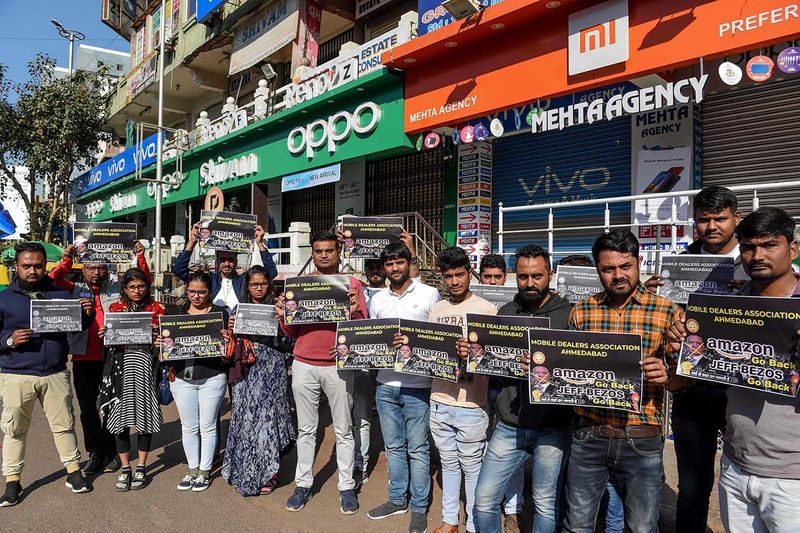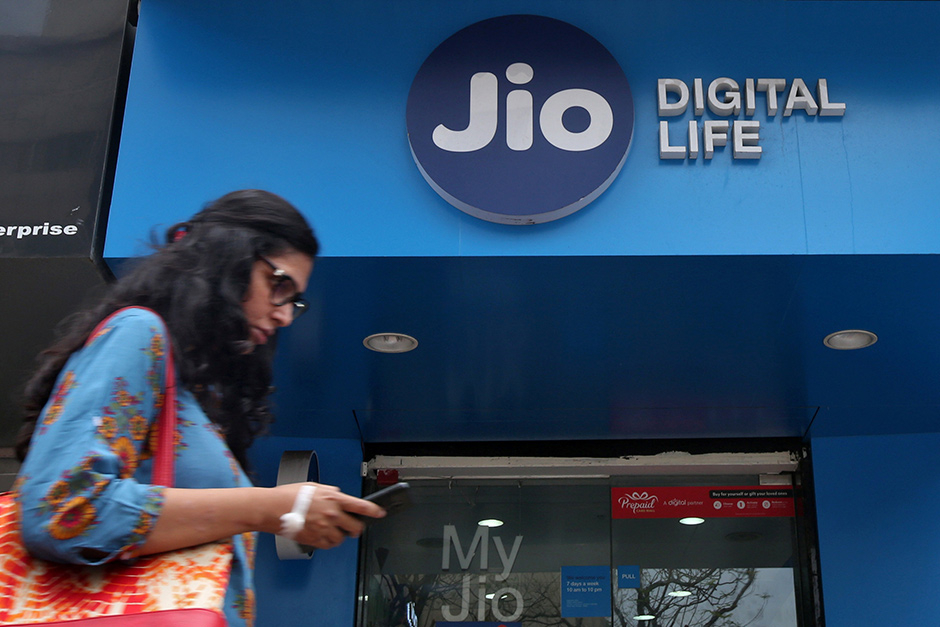Jeff Bezos, founder of Amazon, was on a appeal offensive all through his India journey.
Image Credit: Reuters
Dubai: Jeff Bezos met prime movie stars, Shahrukh Khan being amongst them, and made guarantees of spending $1 billion in India to take the Amazon story ahead.
But it is who he did not meet throughout his excessive-wattage go to to India that would have far-reaching penalties for Amazon — in what has turn out to be an exceptionally necessary marketplace for the e-retailer.
Despite hypothesis he may, Bezos by no means had a face-to-face with the Indian Prime Minister Narendra Modi.
Neither did he come throughout Mukesh Ambani, India’s wealthiest man, who is presently scripting Reliance’s take-no-prisoners push into the world of on-line shopping for and promoting. (Bezos, in truth, has by no means been off the headlines in these two weeks, with the newest one associated to Saudi Arabia.)
As for assembly Modi, it may have proved a humiliation for each as India had simply introduced an investigation into Amazon and Flipkart, on whether or not the 2 market giants had been providing heavy reductions to achieve aggressive benefits. (Flipkart, now owned by US retail big Walmart, is the opposite main participant in India’s ecommerce house.)
A gathering would not have gone down nicely politically inside India as nicely — proper from the second Bezos landed in India, he was met with protests from small-scale retailers, who nonetheless retain an outsized affect in society, and are involved that Amazon is doing the whole lot to place them out of enterprise.

Mobilephone retailers in the Indian metropolis of Ahmedabad had been positively not rolling out a pink carpet for Bezos. They had been protesting towards the pricing coverage adopted by the marketplace.
This is additionally a base that the ruling BJP-led authorities would not wish to displease, provided that they signify a number of the social gathering’s most ardent lengthy-time period supporters.
For India’s on-line procuring universe, these are proving distractions to what has basically been excessive-octane development — and extra of it — in latest years.
Which is why market watchers are hoping that the Indian authorities would go in for a broad re-write of its e-commerce coverage.
“The existing policy has imposed numerous restrictions over the marketplaces — Amazon and Flipkart,” stated Anuj Puri, chairman of Anarock Property Consultants. “India’s ecommerce corporations have been struggling to stability operations and profitability.
“More than fresh restrictions, what the e-commerce sector needs is a comprehensive policy and guidelines from the forthcoming budget (due on February 1). Stakeholders expect the government to take steps to improve consumption and spending while simplifying GST (Goods and service Tax) for online vendors and bringing more parity with their offline counterparts.”
Tough to behave
But would the federal government have the political will to make this occur, particularly at a time when the financial system is slipping right into a low-development freeze. It would take loads of guts to do something that is perhaps construed as giving ecommerce gamers a lift whereas the brick-and-mortar retailers are dealing with the worst disaster of confidence in almost a decade.
And it was as just lately as December 2018 that the federal government restrained on-line giants from promoting merchandise of corporations in which they’ve a stake. According to the round, these companies had been additionally barred from unique preparations with sellers and providing steep reductions to shoppers.
“The new rules clarified that foreign direct investment would only be allowed in e-commerce companies that provide marketplaces for buyers and sellers,” stated Puri. “These restrictions have forced online majors to rethink their business models and look for alternative sources and business arrangements.” (To adjust to the brand new guidelines, Amazon offered its stake in Cloudtail, an Indian on-line retailer.)
Now comes the investigation into whether or not Amazon and Flipkart had breached these necessities, particularly in providing steep reductions.
A billion greenback recreation
Despite the political headwinds, Bezos was on a appeal offensive all by means of the India go to. With strong cause too, given the billions which can be at stake. According to RedSeer Consulting, India’s e-procuring touched $29 billion (Dh106 billion) final yr from $23 billion the earlier yr.
During a six-day interval marking “Diwali”, Amazon and Flipkart pulled in simply over $three billion value of orders.
“This growth despite a slowdown in overall retail spending showcases the resilience – and maturity – of the industry,” stated Sandeep Ganediwalla, managing associate at RedSeer.
“Electronics and fashion categories saw a breakthrough year with cumulative 30 per cent growth year-on-year, driven by strong performances of marketplaces as well as “super-vertical” gamers in the class.” (Super-vertical refers to these on-line portals that specialise solely in one product class, whereas marketplaces resembling Amazon supply nearly the whole lot beneath the solar.)
The complete of India is becoming a member of in the net procuring social gathering and not simply the town dwellers. It may be why small retailers are significantly involved in regards to the Amazon onslaught.
“While the number of shoppers in metro-cities are growing at 10 per cent plus, in Tier-2 cities, online is growing at 25 per cent year-on-year,” Ganediwalla added. “But profitability in India’s e-shopping is at least three to five years away.”
And then comes Reliance
Profitability or not, the most important affect on trade-huge fortunes can be when Ambani’s Reliance decides to go full tilt into on-line. It already has the naked foundations to make issues occur.
“With the unveiling of JioMart, millions of neighbourhood stores are expected to be linked to the millions of customers of Reliance’s 4G telecom network Jio,” stated Puri. “For this on-line enterprise to offer stiff competitors to present gamers, it should supply reductions, cashless fee, in-store credit score and the comfort of house supply.

Mukesh Ambani’s attain in the telecom house cuts throughout India. He is on the cusp of utilizing these strengths to make some extent in the net procuring house.
Image Credit: Reuters
“It’s anybody’s guess whether this new venture will be a formidable play – but it will surely shake up the market and make way for some serious churning.”
When Mukesh Ambani is a part of the equation, it gained’t be something lower than an entire churn.
For Bezos, turning into a extra frequent flier to India would make sense. The ultimate phrase is but to be stated in the world of on-line procuring in India.
Slow going for brick-and-mortar
A slowing financial system is being felt throughout all of India’s actual property verticals, together with retail leasing. Leasing of retail house in India’s Top 7 cities dropped 35 per cent in 2019 over 2018 – from 510,000 sq. metres (5.5 million sq. toes) to 335,000 sqm (three.6 million sq. toes).
“The threat of slowdown is a reality that has hit the retail industry as well,” stated Anuj Puri of Anarock. “For an industry dependent heavily on consumption and spending, the dropping GDP growth rate is having visible repercussions.”









